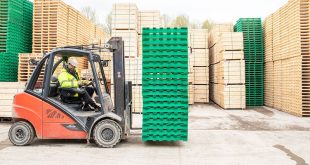Steven Heath talks about talking about the Green Deal
I recently joined Kevin McCloud and Greg Barker – Minister of State for energy and climate change – for a live webinar in which we were discussing the Green Deal, with the debate fed by questions from you.
It was an interesting and stimulating discussion as if the Government gets it right, the Green Deal will not only provide an affordable way to renovate the UK’s housing stock and make our homes less energy intensive, but it could also improve their aesthetic appeal, and mitigate sky high energy bills.
However, with the official launch planned for next Autumn (2012), the detail of the Green Deal policy is yet to be decided. If the Government is to achieve its ambitions, aspects of the current framework urgently need to be addressed. For me, at the heart of this debate are two key questions.
1. Will the current incentives be enough to drive take up amongst householders?
The Green Deal needs strong buy-in from people if we are to stand any chance of a decent response, and financially attractive incentives will be vital to this.
Sweeteners such as reduced council tax or stamp duty for those taking up the Green Deal will be a great market mechanism, but these need to be secured early on so we launch with a bang. Incentives such as these will offer volume in the first years of the Green Deal, driving down product and installation cost as well as allowing the new ‘not for profit’ Green Deal Finance Company the amount of Green Deal debt it needs – around £500m initially – to access cheaper finance on the capital markets. Reduced costs on all fronts make it easier to achieve the golden rule.
2. Is the Government going to allow the insulation industry to transition safely?
While the Green Deal could be an exciting opportunity, it will still need to be underpinned by the new Energy Company Obligation (ECO).
I was interested to hear Greg Barker say that the “ECO pot must be dynamic in order to meet market change”. Under its current design it has the potential to both undermine the insulation market and lose a lot of the easy wins which would drive Green Deal take up.
The insulation industry is set up to deliver high numbers of loft and cavity wall insulation, and not solid wall insulation (SWI) – a more technically challenging measure. The Government’s current proposal to only financially support SWI (not lofts and cavities) for the majority of households does not allow the industry time to transition and, potentially, threatens to drive dangerous expansion rates in an immature market.
If the market incentivises sensible ramp up, the longer lead in and installation times for SWI will mean it offers a weak driver to Green Deal take up. Having previously managed the Welsh Government’s energy efficiency programme ‘Arbed’, I am very familiar with some of the issues that can put the brakes on SWI installation rates.
Allowing a part of the ECO to subsidise loft and cavity insulation for all householders in the first four years, with that portion decreasing year on year as transition is achieved and the remaining loft and cavities are captured, offers best value for homeowners, government and industry.
The UK is experiencing one of its greatest ever financial deficits, but the danger is that if we choose to launch the Green Deal with a few tentative incentives and the scope of the Energy Company Obligation is too limited, we’ll see a huge drop off in current installation rates in the first two years of the scheme.
We urge the Government to address these concerns as part of the Green Deal and ECO Consultations and hope that by this time next year we’ll be working under the Green Deal to create homes that offer a better standard of living to homeowners nationwide.
Steven Heath is external affairs director at Knauf Insulation www.thinkinsulation.com
This blog first appeared on www.greatbritishrefurb.com the website of the Great British Refurb Campaign
 Builders Merchants Journal – BMJ Publishing to Builders Merchants and the UK merchanting industry for more than 95 years
Builders Merchants Journal – BMJ Publishing to Builders Merchants and the UK merchanting industry for more than 95 years



